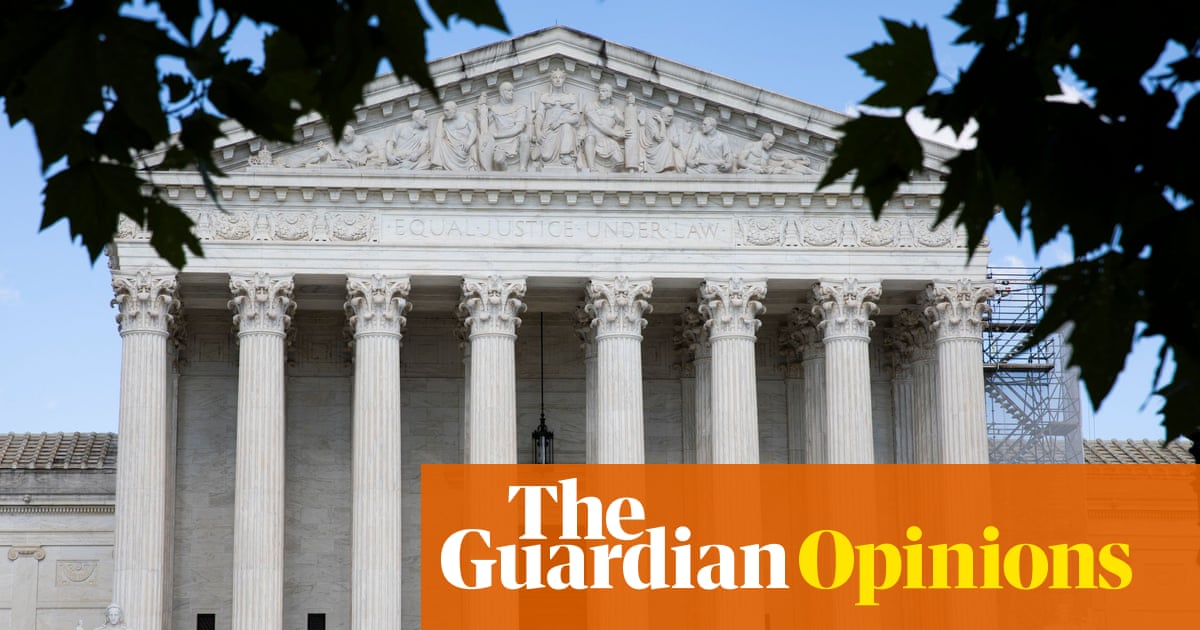Supreme Court's Ruling on Birthright Citizenship: A Shift in Judicial Power

Every June, those who report on the United States Supreme Court encounter a unique challenge: how to accurately reflect what the Court is doing versus what it claims to be doing. This year's decision in Trump v Casa, Inc., particularly regarding birthright citizenship, highlights this dilemma.
In a contentious 6-3 ruling, the Supreme Court stated it was narrowing the authority of federal district judges to issue nationwide injunctions, ostensibly respecting the executive branch's prerogatives. However, this ruling effectively empowers the current president, allowing him to override constitutional rights at will. By limiting the ability of federal judges to halt executive actions nationwide, the Court has placed immense power in the hands of the presidency, particularly regarding significant issues like citizenship.
The recent ruling specifically impacts President Trump's executive order aimed at ending birthright citizenship. This order, which many argue contravenes the 14th Amendment, can now proceed in jurisdictions without ongoing lawsuits or regional stays. As a result, there will be a confusing and disparate enforcement of citizenship rights across the country: some newborns will be recognized as citizens in certain areas, while others born elsewhere may not share that status. This creates a precarious legal landscape where the rights of individuals are contingent upon their geographic location and the current legal proceedings.
Justice Sonia Sotomayor, dissenting alongside her liberal colleagues, expressed deep concern over the implications of this ruling, stating that it endangers all rights under the new legal framework established by the Court. Justice Ketanji Brown Jackson further emphasized the ruling as a perilous endorsement of unchecked executive power, which the framers of the Constitution sought to prevent. The case originated from an executive order issued when Trump resumed office, which sought to terminate the long-standing principle of birthright citizenship, a concept enshrined in the Constitution since its ratification.
Immigrant rights organizations, representing American newborns and their families, challenged Trump's order, leading to a nationwide injunction that temporarily halted its enforcement amid ongoing litigation. Such injunctions have been critical in curbing executive overreach, particularly in an era where the Executive Branch has engaged in actions deemed illegal or harmful to citizens.
While nationwide injunctions have recently become a frequent judicial response to Trump’s policies, their application is not limited to any one administration. During the Obama and Biden presidencies, Republican-appointed judges frequently employed them to block various policies, a practice the Roberts Court previously supported. However, with this latest ruling, the Court has adopted a more restrictive interpretation of judicial authority, seemingly favoring Republican interests and, in doing so, has considerably broadened presidential power. The implications are profound: the ruling suggests that the rights of American citizens, such as the right to claim citizenship at birth, can be disregarded at the president's discretion.
The challenge for commentators and legal analysts is heightened by the Supreme Court's apparent lack of transparency and good faith in its self-description. Justice Amy Coney Barrett, writing for the majority, claimed the Court's decision was merely about respecting executive authority, seemingly overlooking the broader consequences of such a stance. This reasoning raises unsettling questions about electoral legitimacy and the very nature of rights in the context of federal governance.
Compounding this issue is the fact that the Court did not directly address the merits of Trump's controversial assertion that the Constitution does not guarantee birthright citizenship. Consequently, while the legal battle continues, vulnerable children – those born to immigrant parents – face the immediate threat of being denied the rights guaranteed by the 14th Amendment.
Ultimately, this ruling reflects a broader ideological stance within the rightwing legal movement, which appears to contest the foundational beliefs of equality and pluralism that the 14th Amendment represents. The future of citizenship and the rights of American-born children is now marred by uncertainty and inequality, undermining the principles of justice and dignity for all.




























